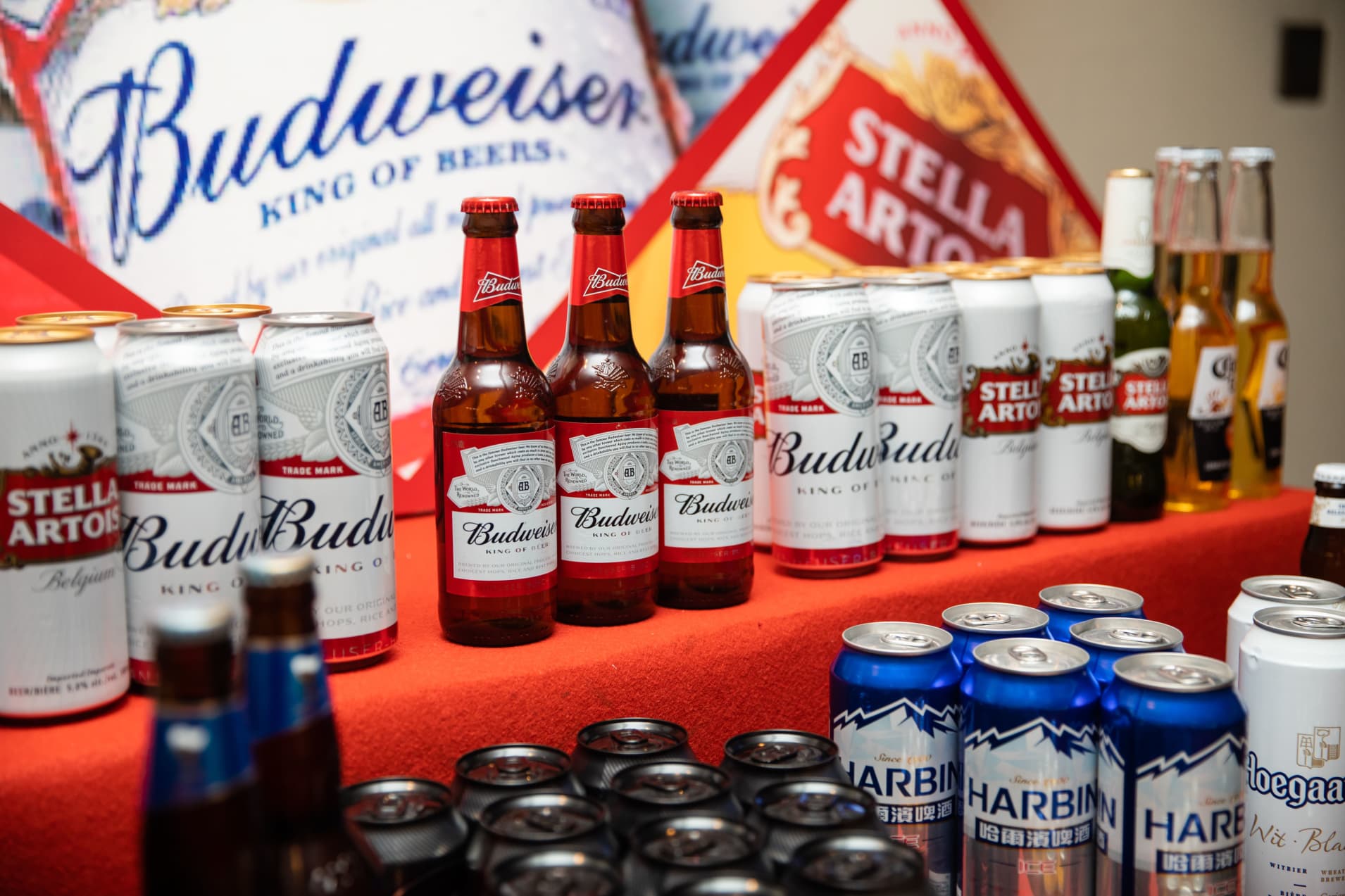A few years ago, Carlos Brito, chief executive of the world’s largest brewer Anheuser-Busch InBev (AB InBev), was faced with a fundamental issue. During an introductory presentation to new trainees, Brito was asked a big question: What would the world miss if the company didn’t exist?
At the time, he didn’t have a good answer, recalls Pedro Earp, who leads the company’s innovation and investment group ZX Ventures and is also AB InBev’s chief marketing officer, responsible for brands such as Budweiser, Corona, and Stella Artois.
“He came back to the leadership team and said, guys, we need to have a very clear reason why the world would not be a great place if we did not exist. So, we did a bit of soul searching,” Earp told CNBC.
The team looked back on the history of beer and realized that it had been a social lubricant for thousands of years.
“We are actually in the business of bringing people together. It’s archaeologically and historically true, you know beer has been bringing people together for more than 10,000 years. You know (in) the earliest civilizations people actually started getting together … partly to brew beer. And that’s kind of our purpose, our purpose is to bring people together,” Earp said.
Having a purpose beyond simply selling products is much talked about in marketing and was a big topic at industry conference Cannes Lions this year (even burritos have a mission over just filling a lunch gap) and Earp has previously said that employees need to see and believe that their goal serves a higher purpose than just sales — hence that existential question asked of Brito.
Like other companies, AB InBev had not focused enough on innovation. The company had been talking about it since around 2010, and got “incrementally better,” Earp said, but it needed to speed it up. “The problem with innovation is that innovation takes time, it requires effort, it doesn’t pay back overnight. So, whenever you let some of the innovation efforts compete with a core business, you know innovation in the long term is also second priority.”
But in 2015, it made a big bet on innovation, hiring a bunch of people for ZX Ventures and housing it in a different building with its own separate business functions like HR and finance. Four years on, its new brands including Saturday Session low-alcohol canned wine, beer delivery app Ze Delivery and vending machine Beer Box have collectively made $1 billion in sales.
AB InBev has grown through aggressive acquisitions, buying SABMiller in 2016 in a deal worth $100 billion, and has been working to reduce the debt pile that contributed to it. Last week, it agreed to sell its Australian operations to Japan’s Asahi for about $11.3 billion in enterprise value, after it called off an initial public offering (IPO) of its Asia-Pacific unit.
Part of Earp’s task is to find new ways to grow when beer sales are declining in the U.S — the Beer Purchasers’ Index, a metric used by the National Beer Wholesalers Association to track beer sales, fell to 48 in June from 62 in the same month last year — and along with low or no-alcohol products, some of the solutions seem to be in selling beer differently.
It has more than 500 bars that it owns internationally and it has launched e-commerce sites too. The bars are a great way to test out new products, Earp said, and the e-commerce sites provide insights on what people are looking for. On its Brazilian e-commerce site Emporio da Cerveja, for example, it noticed that people were searching for Becks, which wasn’t available in the country. So, it added the brand to the website and it shot straight into the top five beers. Latin America is one region where beer sales are increasing, although at a slower rate than in the early 2000s.
Earp plans to bring what he’s learned with ZX to the rest of the business. “We’re going to a second phase, which is how can you bring some of these learnings and bring them to the core business, how can we become more agile, how can you come closer to start-ups?” he told CNBC. At the same time, Earp will use some of AB InBev’s huge reach to scale some of the products coming out of ZX.

No comments:
Post a Comment